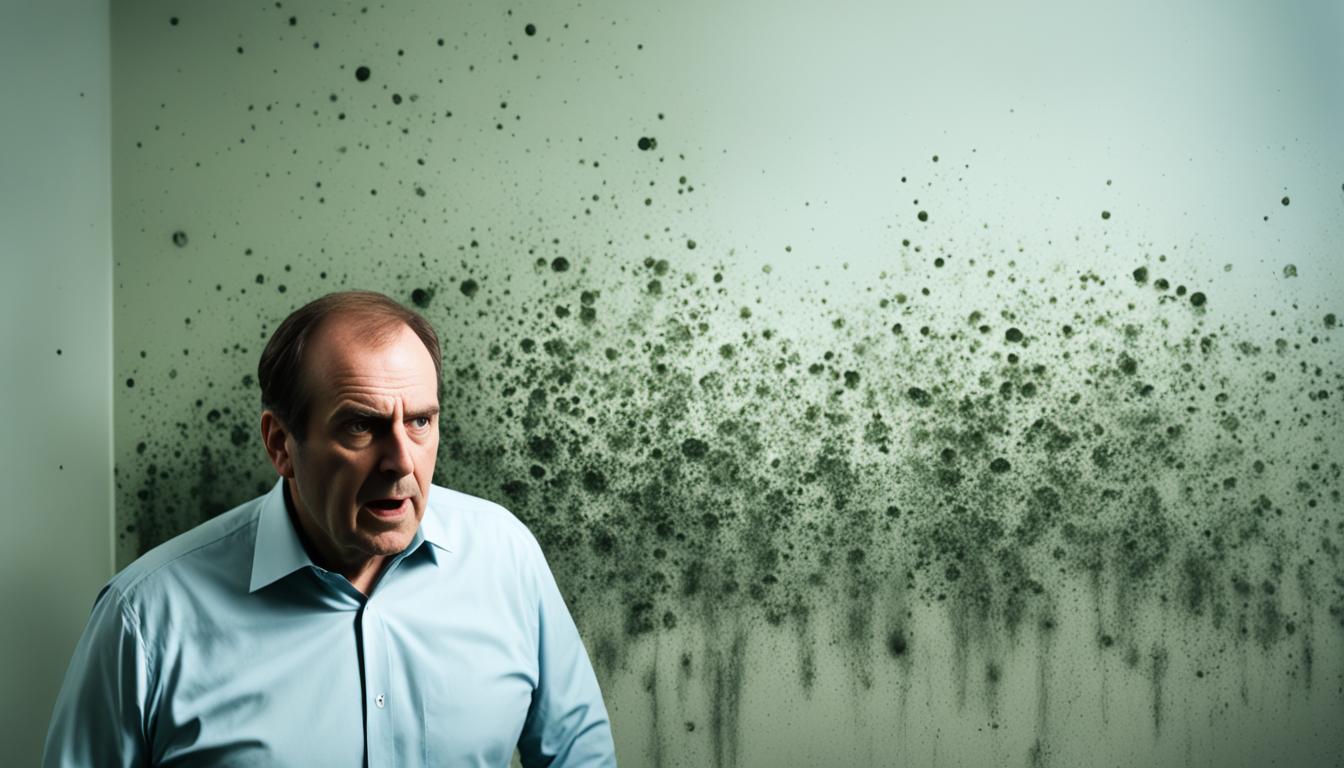
Understanding Mold Poisoning: Risks & Symptoms
Mold poisoning is a serious health concern that can affect individuals who are exposed to mold in their environment. Mold, a type of fungus, thrives in damp areas and can release spores into the air, leading to potential health risks. It is important to be aware of the risks and symptoms associated with mold poisoning to protect your well-being.
Exposure to mold can occur in various settings, such as homes, offices, and schools, especially in areas with humidity or water damage. The presence of moisture, inadequate ventilation, and poor maintenance can contribute to mold growth. When mold spores are inhaled or come into contact with the skin, they can lead to adverse health effects.
Common symptoms of mold poisoning can manifest in different ways depending on the individual’s sensitivity and the extent of exposure. Respiratory problems, such as coughing, wheezing, and shortness of breath, are among the most prevalent symptoms. Allergic reactions, including nasal congestion, sneezing, and skin irritation, may also occur. In severe cases, individuals may experience neurological symptoms such as headaches, memory issues, and mood changes.
It is crucial to recognize the signs of mold poisoning and seek medical attention if you suspect exposure. Ignoring these symptoms can lead to prolonged health complications and worsen existing conditions, especially for individuals with compromised immune systems.
Key Takeaways:
- Mold poisoning can occur due to exposure to mold in damp environments.
- Risk factors include living in humid areas, compromised immune systems, and being in buildings with mold infestations.
- Common symptoms of mold poisoning include respiratory issues, allergies, and neurological symptoms.
- Early detection and seeking appropriate medical help are crucial for managing mold poisoning.
- If you suspect mold contamination, consult professionals for a comprehensive assessment and remediation options.
Key Risk Factors for Mold Poisoning
When it comes to mold poisoning, certain risk factors can significantly increase your chances of being affected. It is important to be aware of these factors and take proactive measures to minimize the risk of exposure to mold. In this section, we will explore some key risk factors that you should keep in mind.
Living in a Humid Environment
High humidity levels create the perfect breeding ground for mold growth. If you reside in an area with consistently high humidity, such as coastal regions or regions with a tropical climate, your risk of mold poisoning may be heightened. The excess moisture in the air provides an ideal environment for mold spores to thrive and reproduce, increasing the likelihood of mold contamination in your living spaces.
Having a Compromised Immune System
Individuals with compromised immune systems are more susceptible to the dangers of mold poisoning. Conditions such as HIV/AIDS, organ transplants, chemotherapy, or autoimmune disorders can weaken the body’s ability to fight off infections, including mold-related illnesses. If you fall into this category, it is important to be extra cautious and take necessary precautions to minimize your exposure to mold.
Living or Working in Buildings with Mold Infestations
If you reside or work in buildings that have significant mold infestations, your risk of mold poisoning is notably higher. Mold can flourish in damp, poorly ventilated areas such as basements, bathrooms, and crawl spaces. Additionally, water damage from leaks or flooding can contribute to the growth of mold colonies if not properly addressed. It is crucial to address any signs of mold in your living or working spaces promptly to mitigate the risk of mold poisoning.
By understanding these key risk factors, you can take proactive measures to minimize the chances of mold poisoning. It is important to maintain a clean and dry environment, ensure proper ventilation, and promptly address any signs of mold growth. In the next section, we will dive deeper into the common symptoms of mold poisoning and how to recognize them.

Common Symptoms of Mold Poisoning
When it comes to mold poisoning, recognizing the common symptoms is essential for early detection and seeking appropriate medical attention. Exposure to mold can lead to a variety of health issues, with respiratory problems, allergies, skin irritations, and neurological symptoms being some of the most frequently observed.
1. Respiratory Issues: Mold spores can be inhaled and trigger respiratory problems such as coughing, wheezing, shortness of breath, and chest tightness. Individuals with asthma or other respiratory conditions may experience exacerbation of their symptoms when exposed to mold.
2. Allergies: Mold can cause allergic reactions in susceptible individuals. Symptoms may include sneezing, nasal congestion, runny nose, itchy or watery eyes, and throat irritation. These allergy-like symptoms can persist or worsen over time if mold exposure continues.
3. Skin Irritation: Direct contact with mold or mold-infested surfaces can lead to skin irritation, rashes, redness, itching, and sometimes even fungal infections. Skin symptoms may vary depending on the individual’s sensitivity and the type of mold present.
4. Neurological Symptoms: Mold exposure has been associated with various neurological symptoms, although the direct causation is still being studied. These symptoms may include headaches, dizziness, difficulty concentrating, memory problems, mood swings, and fatigue. If you experience these symptoms in conjunction with other mold-related issues, it’s important to consult a healthcare professional.
Mold Poisoning Symptoms Table:
| Symptoms | Description |
|---|---|
| Respiratory Issues | Coughing, wheezing, shortness of breath, chest tightness |
| Allergies | Sneezing, nasal congestion, runny nose, itchy or watery eyes, throat irritation |
| Skin Irritation | Rashes, redness, itching, fungal infections |
| Neurological Symptoms | Headaches, dizziness, difficulty concentrating, memory problems, mood swings, fatigue |
Recognizing these common symptoms of mold poisoning is crucial for taking prompt action to address the underlying issue. If you suspect mold contamination in your surroundings and are experiencing any of these symptoms, it is advisable to consult a healthcare professional and consider getting a comprehensive mold assessment. Your health and well-being should always be a top priority.

Conclusion
In conclusion, mold poisoning can have detrimental effects on one’s health if not addressed promptly. By understanding the common symptoms and risk factors associated with mold exposure, individuals can take proactive measures to protect themselves.
If you suspect mold contamination in your surroundings, it is crucial to seek professional help. Consult Fix Mold Miami, Florida’s most reputable mold assessments, prevention, and remediation service provider at 305-465-6653 for a comprehensive mold assessment and remediation options.
Remember, prioritizing your health and taking preventive action against mold exposure is crucial in creating a safe living environment. Stay vigilant and take necessary steps to safeguard yourself from the risks of mold poisoning.




